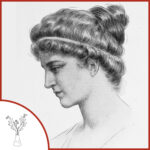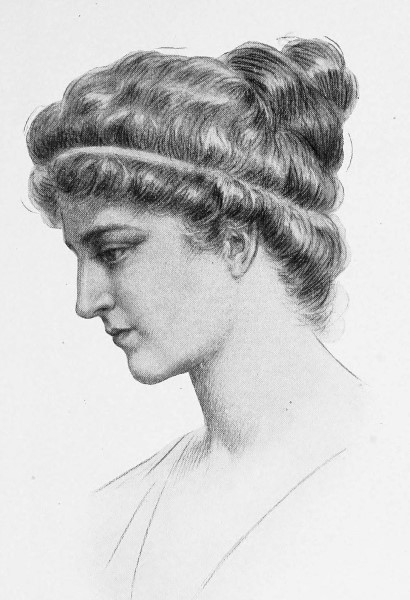

Birth: c. AD 351-370
Death: 415
Specialty: math/astronomy
Major Contributions:
Led the Neoplatonic school in Alexandria
Commentary on Conics
Edited version of Euclid’s Elements
Image Source: Wikimedia Commons
An ancient Greek mathematician, astronomer, and philosopher, Hypatia was also the head of the Neoplatonic school at Alexandria. Born sometime in the fourth century AD, she was the daughter of a mathematician and was educated in Athens, and was one of the first women to study math and astronomy. She taught students in Alexandria about the works of Plato and Aristotle. Accounts from the time describe her as a charismatic teacher who brought a scientific emphasis to her teaching of philosophy.
She taught her students about the construction of tools like the hydrometer and the astrolabe, and perhaps improved on their design.
Like many female scholars and philosophers of her time, there is disagreement about Hypatia’s contributions and writings. She collaborated with her father, and also edited his works including a new version of Euclid’s Elements which became the basis for later editions. She also wrote a commentary “On the Conics of Apollonius,” her version helping explain the concepts of hyperbolas, parabolas, and ellipses in a way that survived for centuries.
Sources record that she was respected by both Pagans and Christians alike – having students from both faiths. Nevertheless in 415, Hypatia was murdered by a Christian mob, acting in retaliation for her involvement in a long standing conflict between the governor of Alexandria and the city’s bishop. Some historians believe that her death marked the end of the classical age in Alexandria and a rise of anti-intellectualism.
Her murder and its long term effects have captured the attention of many, leading to numerous artistic expressions of her life and influencing creative works such as photography, poetry, and plays. The story of her death was also featured in an episode of Carl Sagan’s Cosmos: A Personal Voyage. Hypatia’s life and death continues to influence the world as she is considered a feminist symbol and her work has been expanded by many thinkers and scientists.
Written by Mary Ratliff
Sources:
Agnes Scott College: Biographies of Women Mathematicians
See Also:
To Watch:
